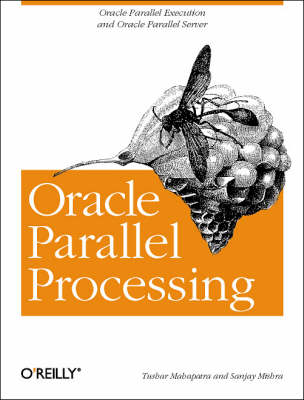Parallel processing involves dividing a large computer task into several smaller ones, and then working on each of the smaller tasks simultaneously. The goal of this divide-and-conquer approach is to complete the larger task in less time than it would have taken to do it in one large chunk. Parallel processing is becoming increasingly important to database computing. That's because, these days, databases often grow to enormous sizes and are accessed by large numbers of users. Such growth strains the ability of single-processor and single-computer systems to handle the load. More and more, organizations are turning to parallel processing technologies to give them the performance, scalability, and reliability they need. This text describes the full range of parallel processing capabilities in the Oracle environment, which supports a number of parallel architectures, products, and features. Selecting, installing, administering, and tuning these facilities demands a lot from system architects and administrators. Unfortunately, if these tasks aren't done properly, major performance problems result.
The book's organization lays the groundwork for successful Oracle parallel processing, with sections that unpack both the major implications of the technology and its details: parallel processing overview - what are its features, benefits, and pitfalls; who needs it and who doesn't?; and what features does Oracle provide, and what are their requirements and overhead implications? The authors take a close look at these issues and present the various parallel architectures (Symmetric Multiprocessing or SMP, Massively Parallel Processing or MPP, clustered systems, and Non Uniform Memory Access or NUMA). The text also covers parallel execution as Oracle supports a variety of parallel execution features in the database. The book shows how to use, administer, and tune all of these features: parallel query, parallel data loading, parallel Data Manipulation Language (DML), parallel object creation, parallel recovery, parallel replication propagation, and parallel function execution. Lastly, the book provides information on Oracle Parallel Server, as Oracle also provides the extra-cost OPS option that makes it possible to spread work over both multiple CPUs and multiple nodes.
The book covers requirements, administration, monitoring, tuning, and recovery issues.
- ISBN10 156592701X
- ISBN13 9781565927018
- Publish Date 19 September 2000
- Publish Status Out of Print
- Out of Print 21 August 2004
- Publish Country US
- Imprint O'Reilly Media
- Format Hardcover
- Pages 268
- Language English
